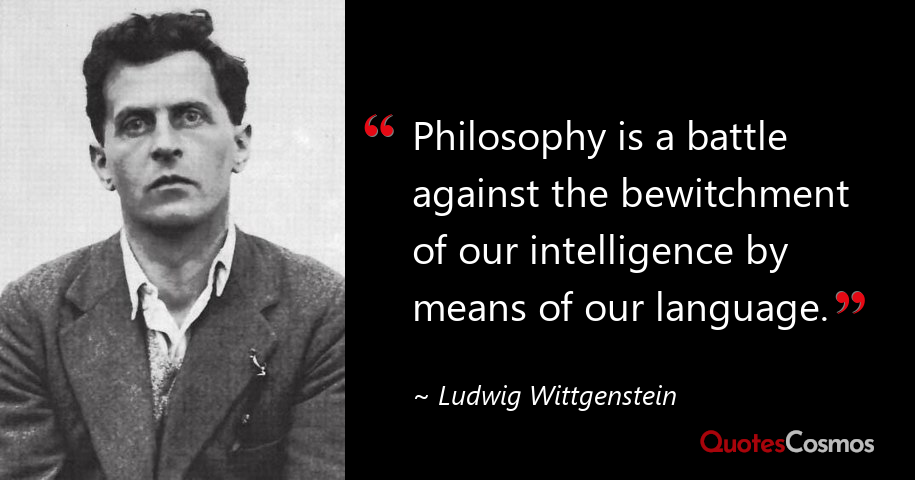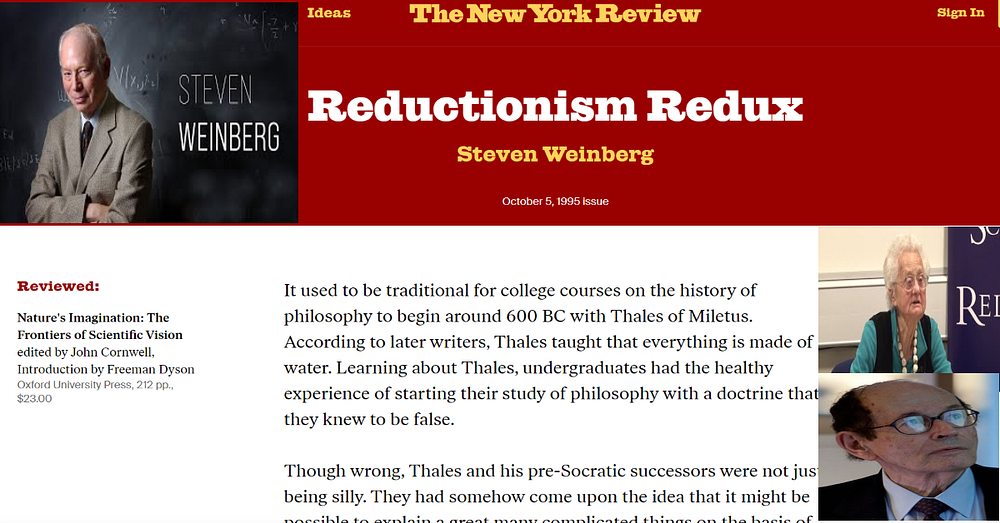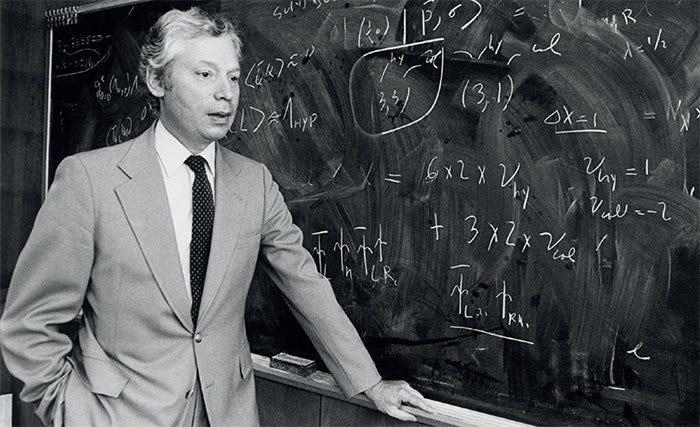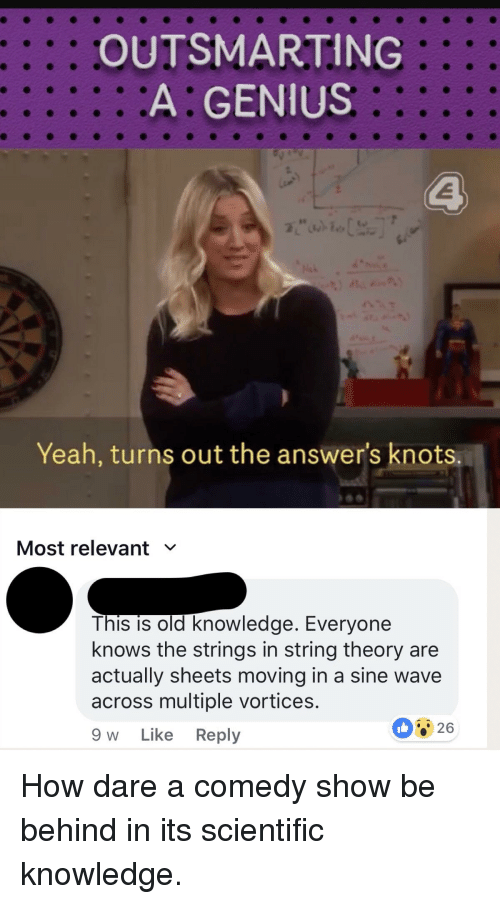The philosopher Lee Braver claimed that Wittgenstein’s “writing style is perhaps the most obscure of all the great analytic figures”. This has led to a “cottage industry of exegetical work and scholarly contention”. What’s more, according to Crispin Sartwell, “the only thing that mattered to [the interpreters] was the question: ‘What did Wittgenstein really mean?’”. All this has often resulted in situations in which there wasn’t “a question as to what’s the best position”.

Much of what the Austrian philosopher Ludwig Wittgenstein (1889–1951) wrote is hard to decipher. Indeed that’s the primary reason why there’s what can (sarcastically) be called a Wittgenstein Interpretation Industry. This also explains why so many loyal Wittgensteinians have got so hot under the collar when other commentators (as it’s often put) “get Wittgenstein wrong!”. Moreover, unlike many other philosophers, much of the debate around Wittgenstein’s work isn’t about whether or not what he wrote is correct or incorrect, well-argued or badly-argued, worthwhile or worthless, etc. — but about what he actually meant.
This need for endless interpretation is strongly connected to Wittgenstein’s appeal.
Yet many — or even most — of the people who read Wittgenstein don’t get him. They don’t understand what he is saying. (This is even true of some professional philosophers too.) Indeed even his fans admit this…
And perhaps that is precisely part of Wittgenstein’s appeal.
What’s more, the fact that Wittgenstein himself said that no one understood him simply compounds the problem even more. (See James C. Klagge’s chapter ‘No One Understands Me’, from his book Wittgenstein in Exile.)
So there are two ways of looking at all this:
(1) Those who claim to understand Wittgenstein deem themselves to occupy a higher intellectual — and perhaps even moral — ground.
(2) Any lack of understanding of Wittgenstein is itself part of the appeal. (As with — esoteric — religious, mystical and poetic writers and thinkers throughout history.)
In terms of one fairly recent example of Wittgenstein veneration, it’s worth mentioning the (otherwise excellent) book Groundless Ground: A Study of Wittgenstein and Heidegger (2012), by Lee Braver. This book is 239 pages long, yet it doesn’t contain a single criticism of Wittgenstein or his ideas (except the mention of his prose style below). What’s more, Lee Braver doesn’t even quote any critical words (i.e., against Wittgenstein) of any philosophers or commentators.
Yet, at the very same time, Braver also puts the problem-with-Wittgenstein (at least the one focussed upon in this essay) very well when he wrote the following words:
“[Wittgenstein’s] writing style is perhaps the most obscure of all the great analytic figures, leading to an unusual state of affairs: ‘one of the most striking characteristics of the secondary literature on Wittgenstein is the overwhelming lack of agreement about what he believed and why.’ Already in 1961, the literature on the Tractatus was compared to literary scholarship in dissension and sheer mass. His opaque prose and sparse argumentation have given rise to a cottage industry of exegetical work and scholarly contention [].”
So along with the aforementioned Wittgenstein Interpretation Industry comes Wittgenstein worship (or “Bible study”, as the Guardian’s Giles Fraser put it). That is, Wittgenstein worship generates the Wittgenstein Interpretation Industry.
Despite such problems with interpretation, Wittgenstein has of course been hugely influential outside the Philosophy Academy in the Sky. Filmmakers have produced biographical works on him, poets have written poems about him, and sociologists, psychologists, linguists and even religious thinkers have borrowed — or simply used — his ideas….
So if the views articulated by many commentators about Wittgenstein’s (as it were) essential mysticism are correct, then perhaps it’s not so strange that Wittgenstein is loved outside the set of all philosophy departments. (See John Horgan’s ‘Was Wittgenstein a Mystic?’.) Indeed it may be Wittgenstein’s esoteric prose that appeals to many of those Wittgensteinians on the outside of the Academy…
So, to track back, can we really accept the possibility which some professional Wittgensteinians (i.e., certain analytic philosophers) seem to believe: viz., that all of these outsiders get Wittgenstein wrong?
It’s interesting, then, that Wittgenstein (in a letter — dated 1932 - to the logical positivist Maurice Schlick) wrote that
“from the bottom of my heart it is all the same to me what professional philosophers of today think; for it is not for them that I am writing”.
All that said, is the Wittgenstein Interpretation Industry now dead anyway?
Is Wittgenstein Dead?

The philosopher Daniel A. Kaufman once stated (in a video discussion with Crispin Sartwell called ‘Is Wittgenstein Overrated?’) the following:
“Wittgenstein has almost zero influence in analytic philosophy today. The interesting thing is that your experience [i.e., Crispin Sartwell’s negative experience] represented the last gasp of that tradition.”
Kaufman also stated (ironically, I presume) that there are only “three Wittgensteinians around today”. (He mentions P.M.S. Hacker as one of them.) Kaufman continued by saying that “analytic philosophy went completely beyond [Wittgenstein]”. He cited the influence of cognitive science as an example of this. Kaufman claimed that the “whole point of [cognitive science] is doing exactly what Wittgenstein believed that you shouldn’t do”. (It’s not clear what this means.) Despite that, Kaufman is also against what he called the “cognitive science revolution” in philosophy. He also believes in “bringing Wittgenstein back” in order to fight a counter-revolution against that cognitive science hegemony (at least within philosophy).
Kaufman admitted that Wittgenstein’s Philosophical Investigations would still come out as a “number one” book in many polls of analytic philosophers. In addition, it’s ironic that Kaufman says that Wittgenstein today is a “dead parrot” when one considers the fact that only recently there were as many as 1000 publications on Wittgenstein in one year alone. (As of 2022 and in ResearchGate, there are 22,934 publications which both mention and are about Wittgenstein.)
But perhaps all this entirely depends on whether Wittgenstein is now a dead parrot to analytic philosophers alone or whether he’s also a dead parrot to intellectual culture generally.
What Did Wittgenstein Mean?

The Wittgenstein Interpretation Industry is primarily driven by the following question (or variations upon it):
What did Wittgenstein really mean by written words […].?
It’s usually only professional philosophers who believe that they’ve got Wittgenstein right. Indeed it’s often a subset of such professional philosophers: Wittgenstein Experts.
However, if professional philosophers often accuse each other of getting Wittgenstein wrong, then what hope have non-professionals got of getting him right? A few, though not many, Wittgensteinians may say, however, that non-professional Wittgensteinians actually have more chance of getting Wittgenstein right. That said, this is certainly not the general view amongst professional Wittgensteinians.
The American philosopher Crispin Sartwell (1958-) picked up on all this (in the video discussion mentioned above) when he stated the following:
“The only thing that mattered to them [the Wittgenstein “cult”] was the question: ‘What did Wittgenstein really mean?’. [] There wasn’t a question as to what’s the best position here [] but what did Wittgenstein really mean?”
That’s what you find with many of Wittgenstein’s acolytes. That is, they’ll shout you down for getting Wittgenstein wrong. (Who knows, they may sometimes be right about this.) However, whether or not the interpreter is right or wrong, Wittgenstein’s ideas or positions (as they can be agreed upon by all the parties concerned) aren’t often the main theme of debate or discussion. Instead, the primary question is usually the following:
“What did Wittgenstein mean by […]?”
Either that, or the opponent-interpreter becomes a victim of the exclamation:
“Stop getting Wittgenstein wrong!”
So we have the classic problem of how to correctly interpret Wittgenstein.
Unlike many other philosophers of the analytic tradition, most of what’s said (or argued about) when it comes to Wittgenstein is about interpretation. Thus, we have Philosopher X saying that Philosopher Y has “got Wittgenstein wrong!”. And then Philosopher Z ostentatiously comes along and says that both Philosopher X and Philosopher Y haven’t “got Wittgenstein right”. And this goes on and on and on.
Ironically, Crispin Sartwell himself says that he “rebelled against Rorty as he read Wittgenstein”. So here again we have another example of the Wittgenstein Interpretation Industry. [Read Sartwell’s article on Wittgenstein quoted here. The original article has since — seemingly — disappeared.]
It gets worse.
Daniel A. Kaufman (again) then asks Sartwell this question: “Do you believe that Rorty read Wittgenstein correctly?” And Sartwell answers: “Yes and no. He read him tendentiously.” Sartwell continued:
“[Rorty’s] basic premise was not to get Wittgenstein right; but to annex him for his own project.”
Yet isn’t that what many — or even most — philosophers have done when they’ve discussed the works of other philosophers?
All the above raises this question:
Is there such a thing as Wittgenstein’s Wittgenstein?
Or is Wittgenstein’s Wittgenstein simply Sartwell’s (or add some other name here) Wittgenstein? And, controversially, if the French philosopher Jacques Derrida was correct when he stated that “there is no outside-text” (or, perhaps better expressed by other theorists, authorial intent is irrelevant when it comes to what we can get from texts), then perhaps it doesn’t really matter what Wittgenstein really meant! (Of course Derrida’s odd utterance about texts has itself been interpreted in multiple ways.)
A more particular example of the history of the Wittgenstein Interpretation Industry (if not Wittgenstein worship) can be found in the case of the philosopher and logician Saul Kripke.
The Case of Saul Kripke

This pressure to respect — or even worship — Wittgenstein was obliquely commented on by Saul Kripke (1940–2022).
Kripke was honest enough to admit (in the video ‘Wittgenstein and Kripkenstein’) that his initial interest in Wittgenstein was solely down to who taught him at university when he was a student. (He mentions “three faculty members”.) Kripke also said that he didn’t at first see the importance of Wittgenstein (particularly, Wittgenstein’s Philosophical Investigations). Indeed he didn’t “develop [his] own take on what [Wittgenstein] was doing until 1962 and 1963”. (Then again, Kripke was still only 22 in 1962!)
More relevantly, the very neologism, Kripkenstein, was coined to express the idea (or feeling) that Kripke got Wittgenstein wrong! (This was particularly in reference to the issues of rule-following and the Private Language Argument.)
Kripke obviously denied that he “didn’t understand Wittgenstein at all”. Indeed Kripke backed this up when he says that “it’s hard for anyone to claim that he or she has got the right understanding of Wittgenstein”…
So why is that?
Kripke continued by saying that
“both the early and late Wittgenstein writes in some style which invites one to wonder what it really means”.
More surprisingly, Kripke then said that Wittgenstein’s work “may be more like continental philosophy than analytic philosophy”. However, it’s still the case that Wittgenstein is “mostly thought to be an analytic philosopher anyway”.
The interviewer of Kripke herself picked up on Wittgenstein’s obscure style of writing. She put forward the possibility that perhaps Wittgenstein wrote in that style “on purpose in order to get readers to think on their own terms”. (This has also often been said about Jacques Derrida — see my ‘Derrida’s Obscure Style of Writing: A Philosophical Critique’.) Kripke responded by saying: “Well, yes, that’s what he says.” Kripke then agreed that Wittgenstein wanted to “encourage readers to think for themselves”.
More importantly, Kripke argued that Wittgenstein didn’t “state theses in philosophy, since everyone would agree to them”. In other words, Wittgenstein didn’t want agreement.
The History of the Wittgenstein Industry

Those who use Facebook will be familiar with the endless quotes (in the guise of memes) from people like Albert Einstein, Richard Feynman, Carl Sagan, etc. on every subject under the sun. Even pretty banal words from these people are turned into memes which are then spread like confetti around Facebook…
Perhaps something similar is (or was) true of Wittgenstein.
Historically, some of Wittgenstein’s early followers treated Wittgenstein’s every off-the-cuff comment as a nugget of pure gold. And then they quoted these comments verbatim to their students, fellow academics and friends. Indeed, according to Julian Baggini, “[a]colytes at Cambridge would even mimic Wittgenstein’s mannerisms and ways of speaking” (see here). Moreover, according to Timothy Williamson (see here), philosophers were scared of criticising Wittgenstein and his work because his cultish followers would respond to such criticisms with anger and aggression.
All that said, we really need to go back to the English philosopher Bertrand Russell (1872–1970) to trace the roots of the Wittgenstein Industry.
Russell once stated that Wittgenstein was “the most perfect example I have ever known of genius”. Yet that was despite Russell admitting that he didn’t understand Wittgenstein! More precisely, Russell wrote (in 1913) the following:
“I couldn’t understand his objection — in fact he was very inarticulate — but I felt in my bones that he must be right. I saw that I could not hope ever again to do fundamental work in philosophy.”
So exactly why did Russell believe that Wittgenstein “must be right” at the very same time as admitting that he “couldn’t understand his objection”? The following is Professor Bejamin Murphy’s neat take on this matter:
“That Wittgenstein’s mysterious charisma disabled a philosopher and logician as brilliant as Russell was among the first of its baleful effects, and Russell did in fact largely abandon logic at that moment. For a while, instead, he concentrated on spreading the Wittgenstein miasma, and his admiration turned Wittgenstein into an intellectual superstar. Ever since, Wittgenstein has been more of a cult than an argument, an irrationalist movement in a supposedly rational discipline. Like Russell, Wittgenstein’s followers know he is right; the only difficulty is knowing what he meant.”
Now let’s jump forward to the 1980s.
Sartwell (again) pointed out that Wittgenstein worship was still prevalent in the 1980s. So that’s some 40 years or more after Wittgenstein worship had first kicked in (if within small circles). Sartwell mentioned Cora Diamond, who was teaching at the university he was a student at. Sartwell stated that “it felt like a cult” at the time… And that’s exactly something that the English philosopher Gilbert Ryle (also an admirer of Wittgenstein) noted some 30 or more years before the 1980s! (Read Ryle’s article ‘Ludwig Wittgenstein’ from 1951, written in the year Wittgenstein died.)
Conclusion: In Defence of Wittgenstein

Of course contemporary Wittgensteinians (as well as Wittgenstein’s defenders) will explain the appeal of Wittgenstein, rationalise why many people don’t get him (as well as why many people have spent so much time arguing about what he means) and even justify the existence of the Wittgenstein Interpretation Industry itself.
So this is how one fan (a Steve Tolley) of Wittgenstein characteristically sums up the critics of Wittgenstein. He does so with a quote from… Wittgenstein:
“It is one of the chief skills of the philosopher not to occupy himself with questions which do not concern him.”
Another Wittgensteinian (a Jim Michmerhuizen) sums up both the critics and fans of Wittgenstein in the following way:
“I get the impression, surveying the answers to this question so far, that most of the respondents fall into one of two classes:
those who are looking for answers
those who are looking for questions
People in the first group appear to assume that Wittgenstein’s importance must be measured by the correctness of his answers. Invariably, these people are horribly disappointed. People of the second class, discovering that Wittgenstein asks far more questions than he answers, are generally ecstatic. I am one of the these.
No one since Socrates has probed his interlocutors as deeply, precisely, and empathetically as Ludwig Wittgenstein.”
Of course there must be at least some consensus on Wittgenstein’s writings. For example, almost everyone agrees that there are “two Wittgensteins”… or do they? (See this article, which has the words “Wittgenstein’s two philosophies are not in conflict; they are complementary” within it.)
So it can’t entirely be a chaotic free-for-all when it comes to Wittgenstein’s words. That said, the problem readers have is wading through the mountains of interpretation — and the heaps of outrage and anger those interpretations bring about — in order to get close to at least some form of consensus. That said, if one is a True Wittgensteinian, then consensus will be the last thing one desires.
Finally, it must now be said that I too have a high regard for much of Wittgenstein’s philosophy. (I’ve written many essays on Wittgenstein — see here.) The problem (if it is a problem) here is that what I’ve gained from Wittgenstein might well have been a result of my misinterpretations of him! (What I’ve gained might also have been partly down to how I’ve unconsciously added to Wittgenstein without even realising it.) That said, if what Derrida and others claimed above is correct (i.e., that “there is no outside text” and/or that authorial intent doesn’t matter), then who cares! That is, who cares if I have or haven’t got Wittgenstein right. Whatever the case is, I’ve still gained something from the Austrian philosopher.


















